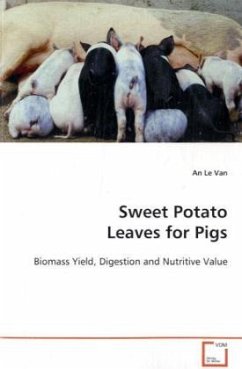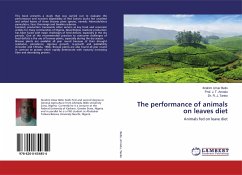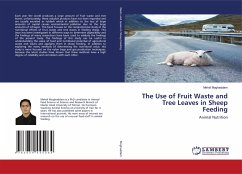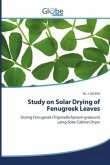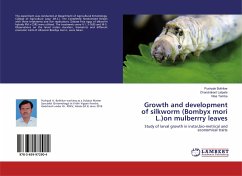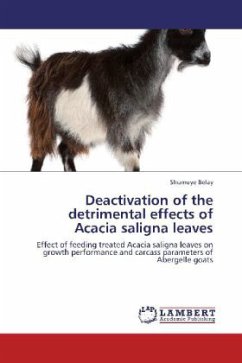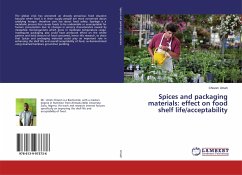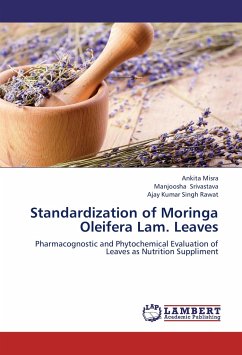Sixteen sweet potato varieties were evaluated with
respect to the biomass yield of the leaves, stems and
tubers under different leaf harvesting intervals and
defoliation techniques with the aim of selecting the
best varieties for forage production. The biomass
yields of leaves, stems and tubers were found to vary
according to variety, season and defoliation
technique. Sweet potato leaves can be used for
feeding pigs in fresh, dry and ensiled forms. Sweet
potato leaves are high in protein content compared to
other protein-rich forages. Lysine is the first
limiting amino acid. Growing pigs fed sweet potato
leaves with addition of synthetic lysine had daily
live-weight gains which was similar to that of pigs
fed fish meal as the protein source.
The study in this book is concluded that Sweet potato
leaves can be considered as a potentially valuable
protein source for pigs under small farm conditions.
respect to the biomass yield of the leaves, stems and
tubers under different leaf harvesting intervals and
defoliation techniques with the aim of selecting the
best varieties for forage production. The biomass
yields of leaves, stems and tubers were found to vary
according to variety, season and defoliation
technique. Sweet potato leaves can be used for
feeding pigs in fresh, dry and ensiled forms. Sweet
potato leaves are high in protein content compared to
other protein-rich forages. Lysine is the first
limiting amino acid. Growing pigs fed sweet potato
leaves with addition of synthetic lysine had daily
live-weight gains which was similar to that of pigs
fed fish meal as the protein source.
The study in this book is concluded that Sweet potato
leaves can be considered as a potentially valuable
protein source for pigs under small farm conditions.

